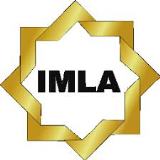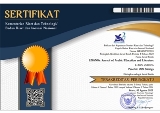Cultivating Unity, Soft Skills, and Arabic Proficiency among Students: A Comprehensive Exploration of Mukhayyam al-Lughah al-Arabiyah Program
DOI:
https://doi.org/10.18326/lisania.v8i1.58-82Keywords:
Arabic Language Immersion Program, Mukhayyam al-Lughah al-Arabiyah, Students perspectiveAbstract
This study aims to capture an Arabic language immersion program (Mukhayyam al-Lughah al-Arabiyyah) by exploring the significance and meaning it holds for the students in-depth. The research focus extends beyond the impact of this activity on Arabic language proficiency alone, considering various related aspects as well. Utilizing a qualitative approach, this research gathered data through deep interviews with several students, participant observations, and documentation. Findings revealed: 1) Mukhayyam serves as a vital annual program, aiming to introduce Arabic language and culture to new students through immersive learning experiences. Through careful planning, involving student committees and departments, the program ensures the quality of activities and materials. 2) The implementation of Bī’ah Lughawiyah in Mukhayyam emphasizes the importance of creating a language-immersive environment where participants are required to communicate solely in Arabic throughout the program. The strict adherence to language rules, consistent supervision, and involvement of proficient Arabic speakers contribute to its successful establishment, promoting effective language acquisition and communication skills among participants. 3) There is a multifaceted significance of Mukhayyam for students. Uncovering its role in fostering camaraderie, forming and strengthening familial bonds, facilitating self-expression for students, and improving students' soft skills. By providing a platform for meaningful interactions and fostering a familial atmosphere, Mukhayyam contributes significantly to students' holistic academic and non-academic development.
Downloads
Published
Issue
Section
License
Copyright (c) 2024 LISANIA: Journal of Arabic Education and Literature

This work is licensed under a Creative Commons Attribution-NonCommercial-ShareAlike 4.0 International License.






